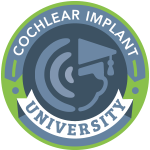Residence life
If you live on campus, it’s important to work with your school to determine the best living accommodations for you. Your primary contacts will be the Office of Residence Life and Office of Disability Services. The Office of Residence Life often consists of staff, undergraduate students, and graduate students. You should create an open line of communication to obtain the accommodations you need to make your living arrangements safe and comfortable. We suggest you start by meeting with the Office of Residence Life. Here are a few questions to help you get started.
It is important to submit any requests to the Office of Residence Life as soon as possible so the staff can make the necessary changes to your living arrangements. If you wait until the last minute to make request, there may be a delay and you might find yourself in an uncomfortable living situation.
Here are some common accommodations used by other students with cochlear implants. You may be more familiar with some than others. Some of these accommodations may be provided by the Office of Residence Life, such as the visual alert, while you may need to provide others, such as the alarm clock. For a full description of these accommodations, download the Residence Life Accommodations Handout:
- Room equipped with a visual alert
- Visual doorbell signal*
- Shake awake alarm clocks and doorbells
- Telephones with amplified receivers in dorms
*Some students with cochlear implants have mentioned that they don’t like having a doorbell system because other students are tempted to ring it, especially late at night.
You should also create a plan so you know how to handle different emergencies, if they occur when you’re in your dorm. The Resources section contains tips to help you develop an emergency plan.

